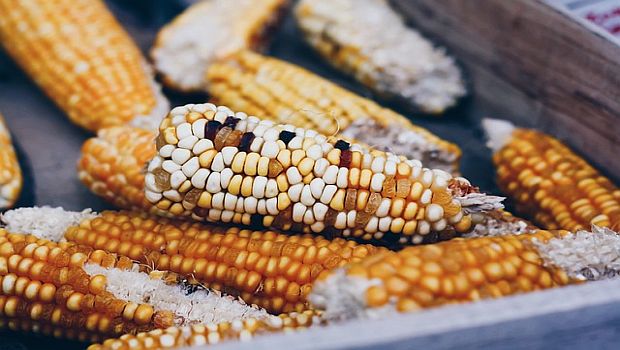Global non-GMO food, beverage market to double by 2019
In a global food and beverage market with retail value in U.S. dollars of more than $5 trillion, non-GMO products accounted for $550 billion of that total in 2014, according to a new report from Packaged Facts.
August 26, 2015

In a global food and beverage market with retail value in U.S. dollars of more than $5 trillion, non-GMO products accounted for $550 billion of that total in 2014, according to a new report from Packaged Facts.
The United States accounts for 36% of overall global non-GMO sales—a figure that amounts to $200 billion, according to “Non-GMO Foods: U.S. and Global Market Perspective, 2nd Edition."
New non-GMO product launches in the United States have been estimated to be about 2,000 per year, up from just a few hundred a decade ago. This increase in non-GMO products is taking place in both the retail market and in foodservice. Driving the market is an expanding consumer desire to have healthier foods with fewer added ingredients or aspects that are not “natural."
Organic and natural foods accounted for the lion’s share of domestic non-GMO sales at 60 percent of the U.S. market last year. Packaged Facts projected that this share will increase to about three-fourths of overall non-GMO retail sales by 2019.
According to Packaged Facts, the increase of organic/natural as a part of non-GMO reflects:
The increasing popularity of organic food specifically and natural foods more generally with American consumers
The linkage between organic and non-GMO in consumer understanding
The probability that there will be no resolution on a national level regarding mandatory GMO labeling on food and beverage products.
Though proponents of mandatory GMO labeling have spent years trying to pass legislation that would require food and beverage manufacturers to label products containing GMO ingredients, their attempts were stifled when the House of Representatives passed the Safe and Accurate Food Labeling Act last month. The legislation would preempt states from requiring labels on GMO foods and create a program administered by USDA through which foods could be certified as being produced with or without genetic engineering, with a seal identifying covered products.
Regardless, many consumers seek products lacking GMOs. In fact, 47% of consumers consider non-GMO products “better," according to research by BENEO on consumer perception of fiber ingredients, reported by Kate Lloyd in the article, “Removing GMOs." What’s more, products verified as GMO-free by the Non-GMO Project dramatically increased in recent years. Lloyd cited SPINS research showing total sales of Non-GMO Project verified products jumped from USD $348.8 million in 2010 to $10 billion in 2015.
Packaged Facts anticipates the growth will continue. Looking ahead on a larger scale, Packaged Facts forecasted the total global market for non-GMO foods and beverages will almost double by 2019 due to a compound annual growth rate (CAGR) of 15% between 2014 to 2019, outpacing the CAGR for U.S. non-GMO sales. Nevertheless, the U.S. share of the global non-GMO market will hold at about one-third.
About the Author(s)
You May Also Like






.png?width=800&auto=webp&quality=80&disable=upscale)